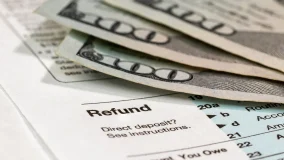Does My Car Model Affect My Insurance Premiums?
When it comes to car insurance premiums, the type of vehicle you drive significantly influences the cost. Insurers look at many factors about your car — like how much it’s worth, how much it’ll cost to fix, how safe it is, and how often vehicles like yours get stolen. So, to answer the question, “Does my car model affect my insurance premiums?” the answer is yes, to a degree.
If you’re cruising around in a fancy sports car or a luxe ride, you’ll probably pay more because they’re pricey to fix and are worth a lot.
But if your car is loaded with safety features and isn’t a magnet for thieves, you could be looking at lower insurance bills. It’s all about the risks and costs from the company’s point of view.
In this guide, you’ll learn how to identify what factors affect your premiums so you can get the best deal.
The Basics of Car Insurance Pricing
So, does the type of car affect insurance premiums? Yes, but there’s more to the story. A mix of individual- and vehicle-related factors to assess the risk and potential costs of insuring a driver shape car coverage pricing. Here’s a breakdown of the key components:
- Driver’s Profile: This includes age, gender, driving history, credit score and more. While you can find affordable car insurance for first-time drivers, younger drivers often face higher premiums due to inexperience. However, a clean driving record can lower rates.
- Location: Where you live can impact your costs due to varying accident rates, theft occurrences, and repair costs in different areas.
- Vehicle Type: As mentioned, the make, model, and year of your vehicle affect your premiums. Newer, expensive cars cost more to insure than older, economical ones.
- Coverage Type: The level and types of coverage you choose (liability, comprehensive, collision, etc.) will influence the price. More coverage typically means higher premiums.
- Deductible Amount: The deductible is what you pay out of pocket before your policy kicks in. Choosing a higher deductible can lower your premium, but you’ll pay more in the event of a claim.
- Insurance History: Gaps in coverage or a history of claims can also affect your rates.
Why Your Car Model Matters
The model of your car significantly influences your insurance premiums due to various factors. If you’re behind the wheel of a luxury cruiser or zippy sports vehicle, you’re looking at higher bills for repairs. It’s all about those pricey parts and sometimes needing a specialist to fix them. On the flip side, cars that get a thumbs-up for safety might be kinder to your wallet when it comes to these products, thanks to a lower chance of issues on the road. And let’s not forget about the possibility of theft. Vehicles that catch the eye of potential thieves could be more expensive to insure.
Got a car with a beast of an engine? Brace yourself for possibly higher rates since there’s more opportunity to speed, which leads to more problems. The sticker price matters, too — the more your ride costs, the more it costs to replace or fix it. And here’s a kicker: even though having safety features might sound like a ticket to saving on your coverage, the high cost of fixing modern tech can make those savings disappear. Insurers weigh all these factors to figure out how much of a gamble it is to insure different car models, affecting what you end up paying.
Under the Hood: How Car Models Impact Premiums
Insurers analyze data on claims, repair costs, and thefts related to specific car models. This information helps them assess the risk associated with insuring different models, influencing the premium rates. So, when choosing a vehicle, it’s wise to consider these factors if insurance costs are a concern for you. Other insurance cost factors include things like a history of recalls and other well-known mechanical issues associated with a given make and model. These are just a few of the most common questions about auto insurance.
Safety Ratings and Collision Data
Safety ratings and crash data have a major impact on car insurance rates. Insurers are like detectives with this; they dig into it to figure out how likely your vehicle is to find itself in a fender bender and how bad things could get if it does. Now, if your ride has top-notch safety ratings, it’s like a big neon sign saying, “Less likely to get badly hurt here!” This means there’s less chance the insurance company will have to shell out big bucks for medical bills if you do get into a crash. So, in their eyes, your car is less of a risky bet, and they might cut you a break on your premiums. It’s all about the odds for them.
On the other hand, collision data, which includes information on how often a particular model is involved in accidents and the average cost of claims associated with those accidents, also influences costs. Cars with a history of higher claims costs or more frequent involvement in accidents tend to have higher premiums. This is because insurers view these vehicles as more likely to result in a claim they will need to cover.
Theft Risk and Vehicle Popularity
Among the many factors that affect car insurance rates, theft risk and vehicle popularity significantly influence car insurance premiums, reflecting how insurers assess the likelihood and potential costs of theft claims. Popular vehicles, especially those with high demand in the secondary parts market, often face higher theft rates. Insurers track theft statistics closely, noting that some models are more frequently targeted by thieves than others, which could lead to more frequent insurance claims. As a result, owning a vehicle that’s a common target for theft can result in higher insurance costs due to the increased risk of theft-related claims.
The High Cost of Luxury: Expensive Models Equals Expensive Premiums?
Owning a fancy car often has its downsides, one of which is shelling out more for insurance. This happens because luxury vehicles, with their swanky materials, cutting-edge tech, and unique parts, cost a lot more to fix or replace if there is a claim. Insurers know they’re on the hook for more money if a high-end car gets damaged, so they charge owners more to cover that risk.
Economical Choices for Lower Insurance Rates
Choosing an economical vehicle not only saves you money at the time of purchase but also over the life of the car through lower insurance premiums. It’s a cost-effective choice that appeals to insurers and drivers alike, balancing affordability with the need for safety and reliability.
Beyond Make and Model: Other Factors You Can’t Ignore
Insurers view drivers with a history of accidents, traffic violations, or insurance claims as higher risk, which can lead to higher premiums. Your age and gender also influence your rates; younger drivers, especially males under 25, typically face higher premiums due to their statistically higher risk of accidents.

Navigating Insurance Options for Your Vehicle Type
When it comes to choosing the right insurance product for your vehicle, you will want to take into account the value of your car, what type of liability coverage you need, and any other add-on options that make sense for your specific circumstances.
Special Considerations for Classic or Modified Cars
For classic cars, insurers often consider the age, rarity, and historical significance of the vehicle. These cars are typically not used for daily transportation but for occasional drives and car shows, which means they often have lower annual mileage. Specialized classic car insurance policies consider these factors, offering agreed-value coverage rather than cash value. This means that in the event of a total loss, the insurance payout is based on an agreed-upon value of the car at the time the policy is written, reflecting its true market value as a classic.
On the flip side, modified cars are those tweaked beyond their factory settings, whether it’s with a boost in performance, a custom paint job, or added aftermarket features. These changes can not only bump up the vehicle’s worth but also affect how it drives and its safety. Getting insurance for such cars usually means you’ll need an appraisal to pin down their enhanced value. Insurance companies also weigh the odds of these vehicles being stolen more often or needing pricier fixes, which can lead to higher premiums.
Finding Discounts That Apply to Your Model
Finding discounts that make sense for your specific make and model is one advantage of working with welcoming insurance agents. Make sure you pick their brain to ensure you’re getting the best possible deal!
FAQ: Understanding Car Models and Insurance Rates
How Can I Find out if Insurers Consider My Car High-Risk?
To find out if your car is considered high-risk by insurers, consider its performance capabilities and theft rates. High-performance vehicles, such as sports cars, typically fall into the high-risk category due to their potential for faster driving, which may lead to more frequent or severe claims. Additionally, cars with high theft rates are also seen as higher risk, as they are more likely to incur claims for theft or vandalism.
What Can I Do to Reduce My Rates if I Own a High-End Vehicle?
To reduce insurance rates for a high-end vehicle, consider increasing your deductible to lower premiums, bundling your auto policy with other policies like homeowners or renters insurance for discounts, and installing safety and anti-theft devices to demonstrate lower risk.
Does Having an Older Model Car Always Mean Lower Insurance Costs?
Not necessarily. While it’s common to assume that older model cars typically incur lower insurance costs due to their lower replacement value, several factors can influence this assumption. For example, your older car may not have the latest safety features.
What Role Do Car Size and Type Play in Determining Insurance Prices?
Larger vehicles, such as SUVs and trucks, often fare better in collisions than smaller cars, potentially leading to lower personal injury claims. However, they might cause more damage to other vehicles, which could affect liability costs.
How Frequently Do Insurance Rates Change for Different Car Models?
Rates for different car models can change periodically, reflecting new data on vehicle safety, repair costs, theft rates, and overall claims history. These adjustments might occur annually or whenever new information becomes available to insurers.
Does Car Color Affect Insurance Rates?
No, car color does not directly affect rates.
Get an Affordable Premium on Any Car You Drive
At Acceptance Insurance, our helpful agents can ensure you get the best possible premium, no matter what car you drive. We make sure our clients achieve maximum savings with the right amount and type of coverage, as well as any add-ons that might make sense. To get started, give us a call at 866-823-4502, find an Acceptance Insurance location near you, or get a quote online today!



